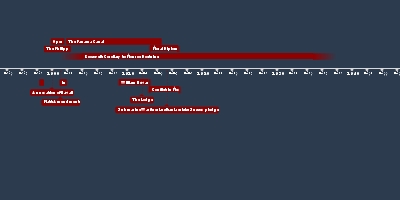Spanish-American War: Causes of the War: jingoism; Yellow Press, yellow journalism; Sinking of the Maine; Teller Amendment (apr 21, 1898 – dec 10, 1898)
Description:
Despite Presidents Cleveland and McKinley both being anti-war (for economic as well as ethical reasons), the U.S. ended up becoming involved in the Spanish American War (1898). Jingoism – a nationalistic fervor that encourages aggressive foreign policy – swept the nation in the late 20th century and played a crucial role in pressuring the government into making this declaration of war. Yellow press and yellow journalism, a form of reporting that involves attention-grabbing headlines and sensationalist/exaggerated accounts of the news, added fuel to the expansionists’ demands for war with Spain. Then, on February 15, 1898, a U.S. battleship, the Maine, sunk following an explosion that killed 260 of the Americans who were onboard. Yellow journalists blamed the incident on Spain, causing McKinley to give Spain an ultimatum to improve their treatment of the Cuban people and to stop trying to harm Americans and the U.S. economy. Then, on April 20, Congress passed a resolution known as the Teller Amendment, declaring war on Spain, and assuring that the U.S. would allow Cubans to control their own government after the war. The U.S. emerged victorious after less than 8 months and acquired Spain’s territorial possessions in the Pacific, cementing the U.S. as a powerful imperial nation.Added to timeline:
Date:
apr 21, 1898
dec 10, 1898
~ 7 months
